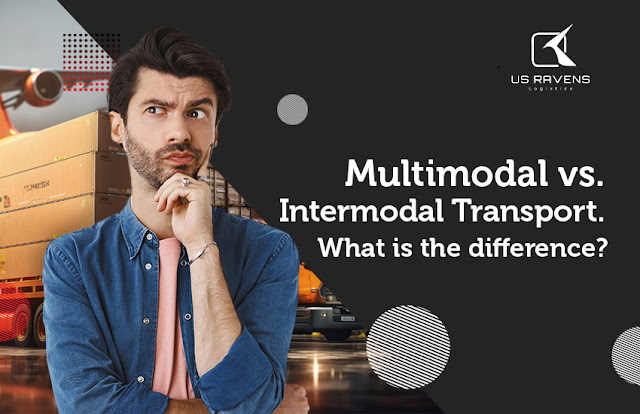Intermodal and multimodal transport are two models used in the shipping industry. Intermodal transport involves the movement of goods using multiple modes of transportation - truck, rail, plane, ship - under separate contracts for each mode. On the other hand, multimodal transport also uses multiple modes of transportation but under a single contract, with one carrier responsible for the entire journey.
Intermodal Transport
Intermodal transport involves goods being shipped using a sequence of various transportation modes - such as truck, rail, aircraft, and sea vessels - arranged through individual contracts for each leg of the journey. This strategy originated in 18th-century England and was standardized in the 1950s. The key advantage of intermodal transportation is that it reduces the amount of cargo handled during a trip, thereby reducing costs and making it more eco-friendly.
Multimodal Transport
Multimodal transport refers to the transportation of goods under a single contract but performed with more than one mode of transport. The carrier is liable for the entire carriage, even though it is performed by several different modes of transport. This model provides a complete solution from origin to destination and involves integrated management by different routes such as road, rail, sea, air, or river.
For instance, an e-commerce company needing to ship products quickly and efficiently might prefer a single contract covering air freight to the destination country and local delivery to the customer’s door. This reduces administrative complexity and ensures a seamless transition between transport modes.
Difference Between Intermodal and Multimodal Transport?
Each business has different transportation requirements. Choice of mode can be impacted by factors like cost, control, liability and ease of management. Let us now see the difference between intermodal and multimodal transportation methods based on certain factors:
Factor | Intermodal Transport | Multimodal Transport |
Number of contracts | Separate contract for each mode of transport | Single contract for the entire journey |
Carrier responsibility | Each carrier is responsible for their leg of the journey | A single carrier is responsible for the entire journey, even if other carriers are used |
Coordination | Customer is responsible for coordinating between different carriers | Single carrier handles all coordination and logistics |
Ease of management | More complex due to multiple contracts and potential coordination issues | Simpler due to single contract and centralized responsibility |
Risk and liability | Determining liability in case of damage can be complex due to multiple parties involved | Liability falls solely on a single carrier, simplifying claim processes |
Cost | can be more cost-effective due to potential competition between carriers | It may be slightly more expensive due to single carrier premium |
Conclusion
Both intermodal and multimodal transport offer unique advantages. Intermodal transport, with separate contracts for each journey, provides more control and can reduce cargo handling. Multimodal transport, under a single contract, offers simplicity and convenience.
The choice between these two depends on your company's specific needs, such as speed, ease of management and security. Understanding these factors can help you make informed decisions about your shipping strategies, ultimately enhancing efficiency and boosting revenue.

Comments
Post a Comment